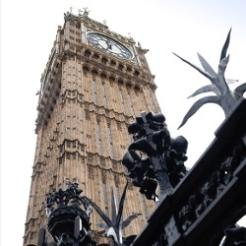The government has attacked “irresponsible and immoral practices” at some large fundraising organisations and said they have damaged the sector as a whole, in its response to a parliamentary committee report on fundraising.
In its response to the Public Administration and Constitutional Affairs Committee's report on fundraising, published on 25 April, the government said that while “the vast majority of charities are well run”, the actions of “some large organisations have damaged the reputation of the sector through irresponsible and immoral practices” which has “had a negative impact on the ability of even small charities to fundraise and do good”.
The government response reiterated that if charities "fail to meet the expectations of the public" then "government will be forced to intervene and mandate statutory regulation".
The government also defended its decision to support the need for the Fundraising Preference Service, after PACAC said that it was “not persuaded of the case for a new fundraising telephone preference service” due to concerns that it would “duplicate the function of the existing Telephone Preference Service (TPS) and add limitations to the activity of charities that do not exist for any other sector”.
In its official response, the government has refuted this assertion, saying that: “the FPS will cut across all direct channels, including telephone, text message and mail and will therefore not simply duplicate existing services”.
It also said that, while it agreed in principle that such limitations do not exist for other sectors, the fact that people’s details were being shared without their knowledge or consent meant that such a measure was necessary.
“While such limitations may not exist for other sectors, the need arises because people involuntarily find themselves subscribed to multiple lists following ongoing poor practice such as data sharing and selling without consent”.
The government also disagreed with PACAC’s recommendations on a number of key points regarding the role of the Charity Commission within the new, fundraising self-regulatory framework.
PACAC suggested that the new Fundraising Regulator should “be held to account in public by the Charity Commission” rather than by itself. It also recommended that the Commission should hold annual hearings on fundraising regulation.
Government said that it wants to give self-regulation one last chance to prove that it can work for fundraising and that “it does not currently support giving the Charity Commission oversight of self-regulation since this is itself would represent quasi-statutory regulation”.
Also, due to the Commission’s limited budgets, government refused to pursue changes to the bill regarding annual hearings as “it would not be an effective means of undertaking casework”.
The government’s response to PACAC’s report was published on Monday and can be read in full here.









